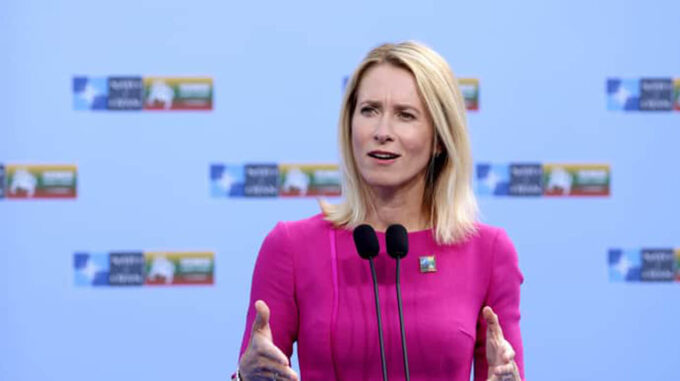Kayla Kallas: The European Union Has a Coherent Understanding and Prepared Scenarios Regarding Hungary’s Veto Possibility Against Ukraine’s accession

The head of European diplomacy and the European Union’s foreign policy department, Kaya Kallas, made an important statement regarding the situation surrounding Hungary’s potential veto against the signing of Ukraine’s EU candidacy. In an interview with journalists in Lviv, she emphasized that European institutions have developed an understanding of what to do if the Hungarian government does not lift its reservations and blocks Ukraine’s accession to the union. Kallas stressed that the EU has a clear plan of action — not just one, but several scenarios to react if necessary. “We are working on Plan A, whose main goal is to gather support from the entire European sector for a swift completion of Ukraine’s accession process to the European Union,” she noted. At the same time, the diplomat added that this approach also includes preparing for possible alternatives, such as Plans B and C, to ensure progress even in the worst-case scenario. “We are confident that bilateral issues, including Hungary’s veto, should not become obstacles to Ukraine’s future within the EU,” she said. The diplomat pointed out that dialogue between Brussels and Budapest is currently ongoing to resolve this issue. “We are working on finding a compromise with the Hungarian government. It is important that any bilateral disagreements do not hinder Ukraine’s determined movement towards joining the European Union,” Kallas emphasized. She also noted that the coordination process does not depend solely on one partner: “Both sides need to do their homework. This applies to Ukraine, the EU, and Hungary. Therefore, we are conducting this dialogue with respect and believe that eventually, an advantageous solution for all will be found.” At the same time, if no compromise agreement is reached, the EU is ready for active measures according to the developed scenarios. “I can assure you that we are already working on Plan B,” she added without revealing details, hinting that, in case of serious diplomatic setbacks, other mechanisms and decisions would be implemented. “The circumstances are still being worked out, and the EU team is actively working to ensure the unobstructed progress of Ukraine towards the European community,” Kallas underscored. According to Kaya Kallas, the very process of Ukraine’s accession — in procedural and symbolic terms — is significant not only for Kyiv but also for the entire EU. It signals unity, the ability to overcome difficulties together, and to advance in the pursuit of a stable and progressive community. “The process of Ukraine’s reunification with the EU is an important stage not only for our country but for the entire European space, as it demonstrates the EU’s capacity to support its partners and not to stop in the face of challenges,” Kallas believes. It is worth recalling that previously, the Ukrainian government expressed concern about the unbalanced attitude of the EU toward Ukraine during its steps towards membership. Meanwhile, in Budapest, Prime Minister Viktor Orbán openly criticizes possible attempts by Ukrainian President Volodymyr Zelensky to influence Hungary’s internal politics, including statements about a potential desire of Ukraine’s President to change the government. A deeper investigation into how Hungary opposes Ukraine’s candidacy through veto use and the political or strategic interests behind Budapest’s actions is presented in a separate article titled “Orbán’s Veto in Favor of Moldova: How Hungary Leaves Ukraine on the Sidelines of EU Membership.” This publication provides a detailed analysis of the preconditions and consequences of such actions, as well as possible scenarios for future developments within the geopolitical landscape of Central and Eastern Europe.

